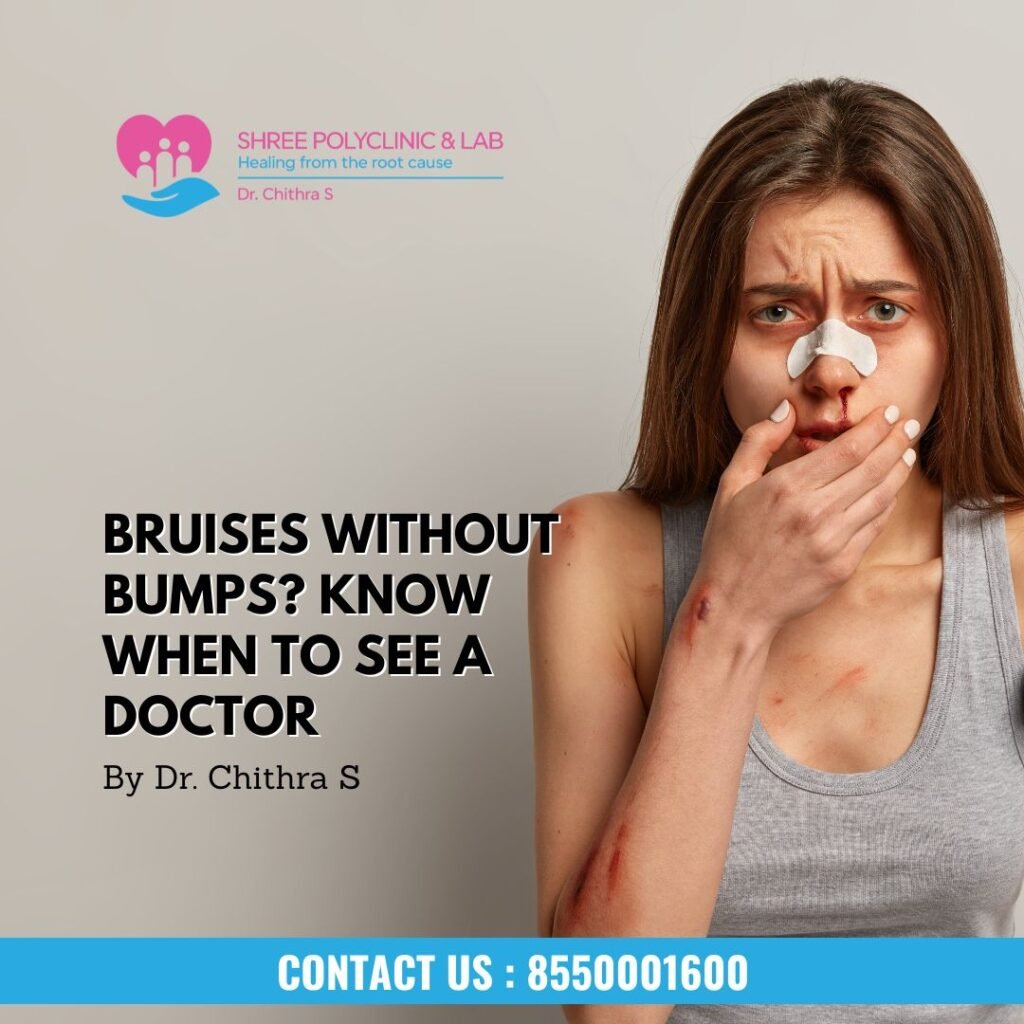Most of us have discovered a mysterious bruise at some point — maybe on our arm or leg — and have no memory of bumping into anything. While occasional bruises are usually harmless and fade on their own, frequent or unexplained bruising may be your body’s way of signaling something more serious.
Let’s explore what it means to bruise easily, why it might happen, when it could be a red flag, and what steps you can take if you notice unexplained bruises appearing.
What It Means to Bruise Easily
Bruising happens when small blood vessels (capillaries) break under the skin due to trauma or injury. Blood leaks out, causing a bluish-purple mark that gradually changes color as it heals. People who bruise easily tend to develop these marks even with very mild impacts — or sometimes without remembering any trauma at all.
While for many, this is just a normal variation, for others, it could be a symptom of an underlying issue.
Common Causes of Easy Bruising
1. Age-Related Changes
As we grow older, our skin becomes thinner and loses some of its protective fatty layer. This makes capillaries more vulnerable to injury. It’s why people over 65 are more likely to bruise easily. In fact, a study published in the Journal of the American Academy of Dermatology found that over 30% of adults over 70 experience frequent bruising.
2. Medications
Certain drugs can interfere with blood clotting or damage blood vessels:
- Blood thinners like aspirin, warfarin, or clopidogrel
- Steroids such as prednisone
- Nonsteroidal anti-inflammatory drugs (NSAIDs) like ibuprofen
- Antidepressants and antibiotics in some cases
Always let your doctor know if you notice increased bruising after starting a new medication.
3. Vitamin Deficiencies
Lack of certain nutrients can weaken blood vessels and affect healing:
- Vitamin C (scurvy in extreme cases)
- Vitamin K, essential for blood clotting
- Vitamin B12 and folate, which support blood cell production
4. Medical Conditions
Several underlying health issues may also lead to easy bruising:
- Blood disorders (like hemophilia or leukemia)
- Liver disease, which affects clotting factor production
- Platelet disorders, including idiopathic thrombocytopenic purpura (ITP)
If bruising is frequent or severe, it’s essential to rule out these possibilities through medical evaluation.
When Should You Be Concerned?
While minor bruises typically aren’t worrisome, certain signs indicate the need for medical attention:
- Bruises that appear without any injury or cause
- Unusually large or painful bruises
- Bruising that occurs alongside bleeding gums, nosebleeds, or blood in urine/stool
- Frequent bruising on unusual areas, such as the back, chest, or face
- Persistent bruises that don’t fade within 2 weeks
- Sudden onset of bruising, especially if accompanied by fatigue, fever, or weight loss
These symptoms could be signs of a blood disorder, vitamin deficiency, or a more serious medical condition and should not be ignored.
What You Can Do About It
If you’re noticing more bruises than usual, here are a few steps you can take:
1. Keep a symptom journal.
Note when and where bruises appear, and whether you recall any injury. This helps doctors identify patterns.
2. Review your medications.
Talk to your healthcare provider about any new or ongoing medications that may affect clotting.
3. Support your diet.
Include foods rich in vitamins C and K — like citrus fruits, bell peppers, broccoli, spinach, and kale — to strengthen your blood vessels and improve healing.
4. Protect your skin.
Wearing long sleeves, using padding when necessary, and avoiding contact sports can help minimize injury in those who bruise easily.
5. Seek medical evaluation.
If bruising is persistent, severe, or accompanied by other symptoms, schedule a visit with your doctor for blood tests or further evaluation.
In Summary
While most bruises are harmless and part of everyday life, frequent or unexplained bruising may be a sign that your body needs attention. From age-related changes to medication side effects and underlying medical issues, the causes are varied — but not to be ignored.
If you’re concerned about easy bruising or notice changes in how often or severely you bruise, speak with your healthcare provider. Early detection of potential problems is key to effective treatment and peace of mind.
Stay aware. Stay informed. Your health deserves it. 💙

